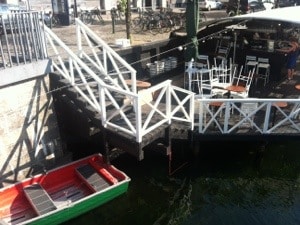Young researchers, Danish universities and long term attraction
Danish newspaper Berlingske (€) wrote an article about how 3 Danish universities (Københavns universitet, Aarhus universitet, Danmarks Tekniske Universitet) have had success in attracting international reseachers to research institutions and centres in Denmark during the last 4 years. Denmark is number 9 (with 22%) of 16 on Nature’s survey conducted in first half of 2011 on global mobility of researchers, which measured the percentage of researchers based in a country with a different nationality than the host country. Sweden our neighbour (though with a population twice the size of Denmark) is number 5 with 38%.
This has required an excellent research environment. Good funding (from amongst others Novo Nordisk Fonden who contributed to the research behind the article) for specialised research centres. Denmark also has excellent facilities for families, easy digital and smooth administration, most Danes speak English and our general quality of life is high.
If we want our research centres and universities to become top ranked world wide then we need input from abroad. Science and research cannot grow in a vacuum.
This takes more than just a greencard system and international funding. This takes a serious commitment and an attitude change.
There are 2 things I can see we need to improve.
We need Danish researchers to go abroad and return to Denmark after they have proven themselves and gotten integrated in research environments abroad. It is a start to do part of your Danish degree abroad, but not enough. We need to make sure that the people hired for permanent positions in Danish universities have these qualifications. Danish institutes must not be allowed to be a closed circuit. Positions should not be given on the basis of wanting to protect the environment around a small subject in eg. humanities. You should get hired because you are the best not because you have studied and worked there.
Now you may be thinking “Ohh but we only want to attract hard core scientist that can invent stuff for Danish companies, so why should we care about humanities?” But that person may be together with someone who is not a hard core scientist. Moving to Denmark is not only about being attractive to one person for a short time. We need to be able to be a long term option for a whole family.
We also need to make sure that when people have studied here whether as a researcher with funding or as a ph.d. Then we must make it a priority that bureaucracy does not get in the way. Wanting to start your own company and stay in Denmark should not be incompatible.
This may turn out this way when the immigration authorities require you to stay in Denmark for more than 6 months while they look at your residence permit application. Destructive for any international researcher or company with a global reach.
So good news in the article from Berlingske, but we can do even better and we must do better to keep up.
